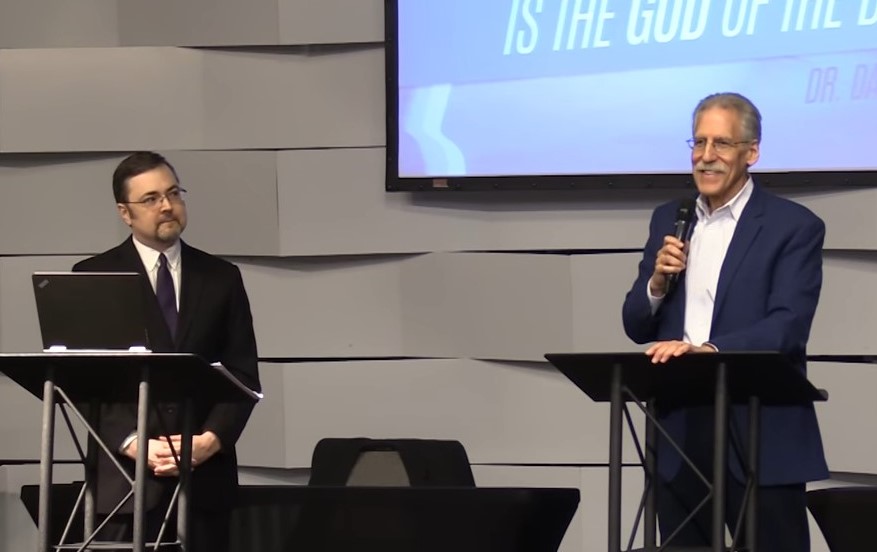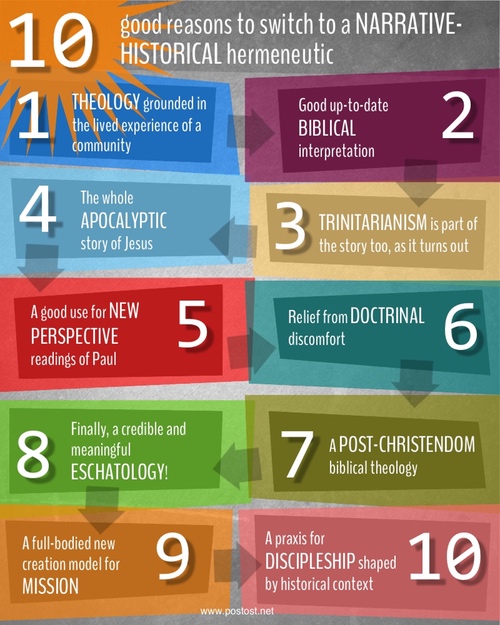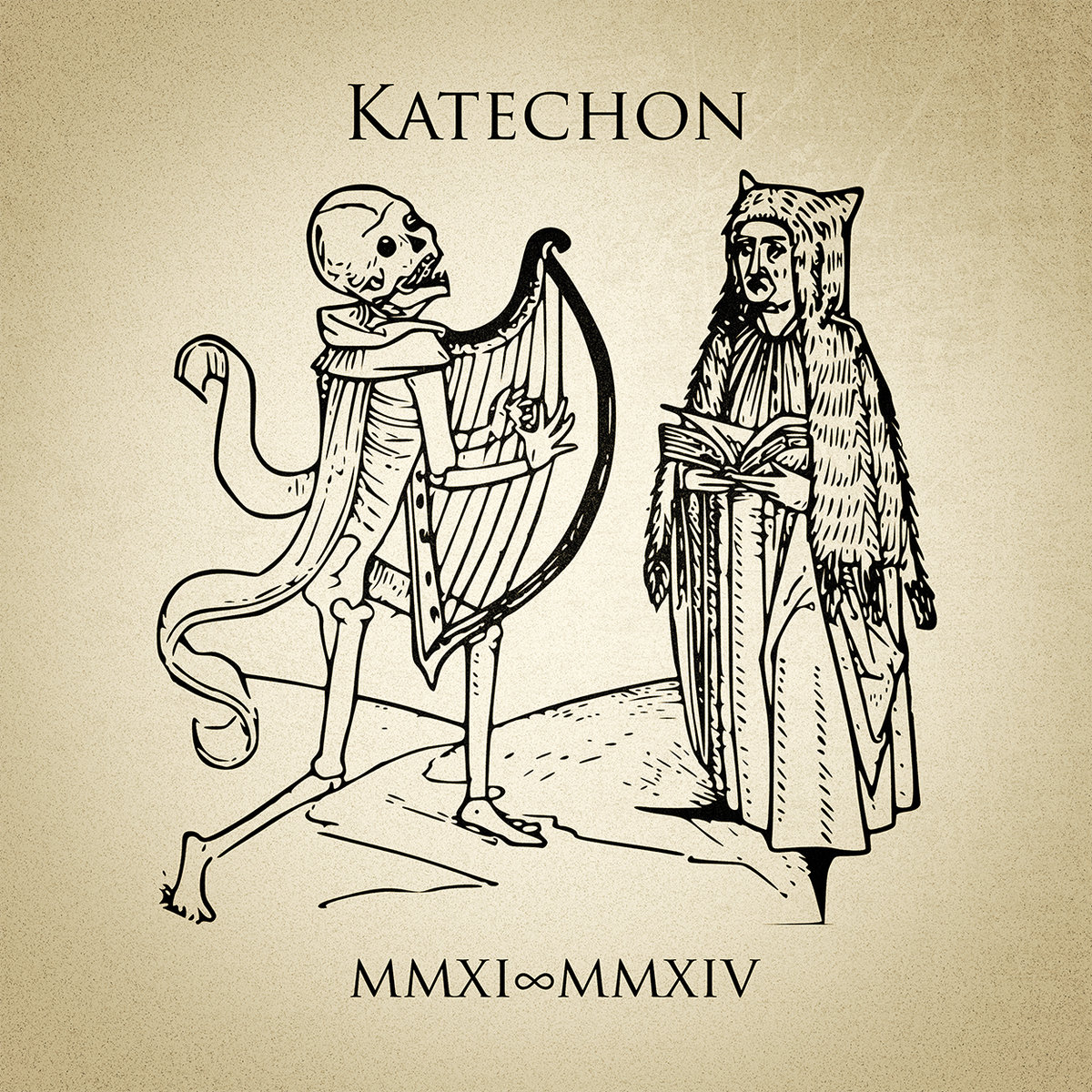 |
The birth of Jesus from God's Logos in Mary
| |
|
The present post is the summary and substance of some comments that, under my name Mario, were appended by me to the post Christian-Muslim debate/discussion, December 12 in Melbourne @ the trinities.org blog.
The question that is explored here is not primarily to do with the Christian-Muslim debate but rather this: what does "Son of God" mean? What, in particular, when it is referred to Jesus Christ?
We may answer, easily enough, that in the cultural milieu of 1st century Judaism, it was a metaphor, with many
sides and layers, but ultimately a metaphor, certainly not a crude literal notion, like the strawman that Mohammed built, including sexual implications like,
say, in earlier Greek mythology, Apollo was the son of
Zeus and Leto, or Heracles was the son of Zeus and Alcmene.
But things are not as simple as that. Certainly “Son of God”, in 1st
century Judaism, was a metaphor, with many facets. The predominant one,
in the way it is used in the NT (and in particular the Gospels), is that of the Messiah, but we cannot ignore that, on the one side, we have the
Nativity Accounts in Matthew and Luke (see, in particular, Matt 1:18 and Luke 1:35), and, on the other side, in John we have the Prologue to the Gospel, with its notion of God’s Logos (John 1:1), which (which logos …), at some point, becomes incarnated (Grk sarx egeneto – John 1:14).
A critical question then, is this: can the Nativity
Accounts in Matthew and Luke and the Incarnation of God’s Logos in John
be seen as two sides of the same account, without dismissing the former
as “mythological” and without resorting to the notion of “pre-existent
(or even eternal) person” for the latter?
My answer is a loud YES: the Virgin Conception is the “outer” and miraculous aspect of the “inner” mystery: the Incarnation, with the caveat, though - contra
Arians and Trinitarians - that the person of the Son of God, Jesus, was
generated precisely at the conception.
Questions & Answers
[Q] Has anybody ever proposed a position equal (or similar) to mine?
[A] The Catholic theologian Raymond E. Brown has spoken of “conception christology” (as opposed to “pre-existence
christology”) in Matthew and Luke. But I believe that nobody has ever proposed to see the Nativity Accounts in Matthew and Luke and the Incarnation of God’s
Logos in John as "two sides of the same account”, as I have. Let me refer
to it, from now on, as “logos-conception christology” (LCC).
[Q] May Socinian Unitarians be interested in LCC?
[A] If Socinian Unitarians accept the virgin conception as literal (IOW
if they subscribe to “conception christology”), they are half way there. No Socinian Unitarian, though, to my knowledge, has ever considered the
Incarnation of God’s Logos as the “complementary side” of “conception
christology”. Maybe some will, but they have to come to terms with the logos as an essential attribute of God, first …
[Q] May Muslims be interested in LCC?
[A] They could, and it would certainly defuse “Mohammed’s strawman”. Also, in the Quran, unbeknown to most Christians, Jesus is spoken of as "a Word from Him [Allah]" (surah 3, ayah 45) and "His
Word, which He bestowed on Mary" (surah 4, ayah 171). Reasonably, though, Muslims
may only begin to consider seriously LCC after Islam has undergone a
process of criticism substantially similar to the one Christianity has
experienced over the last 250 years. Hopefully faster …
[Q] May traditional “orthodox” Christians (i.e. “trinitarians”) be interested in LCC?
[A] I believe NOT. The reasons are so obvious that it is not necessary to expand on them.
[Q] May “liberal” Christians be interested in LCC?
[A] No. In fact even less, if possible, than traditional “orthodox”
Christians. The reason is quite simple. For them, there is no (strong
or even weak) creedal statement of Christianity left. Everything is
fluid, everything is metaphor. Everything is, ultimately, subjective.
[Q] May Jews be interested in LCC?
[A] Apart from the variety of positions within modern Judaism (in
alphabetical order: Alternative, Classical Reform, Conservative,
Humanistic, Haymanot, Karaite, Liberal, Orthodox, Progressive,
Reconstructionist, Reform, Renewal, Traditional – perhaps I have left
some out), obviously, the first stumbling block is the very objection to
Jesus as the Messiah. IF they accept Jesus as the Messiah AND (unlike
most “Messianic Jews”, who often are nothing but “evangelicals in
disguise”) they refuse the “trinity”, THEN, of course, LCC should be of
interest for them.
[Q] How does the LCC fare vis a vis Christian Creeds?
[A] LCC is a strong re-affirmation of genuine Christian Creed, however
minimal. I firmly believe that LCC is entirely compatible
not only with the Apostles’ Creed (more appropriately: the Old Roman Symbol –
2nd century), but also with the Nicene Creed of 325 AD, before is was distorted by the additions of Canstantinople in 381 AD, thanks to the Cappadocian scoundrels. The LCC is obviously
incompatible with the s.c. “Athanasian Creed”.
[Q] How does the LCC fare vis a vis the Christian Scriptures?
[A] I believe that LCC is the only Christology that is perfectly
compatible with the Christian Scriptures, and, in particular, with the
NT, without requiring arbitrary and/or biased assumptions: first and
foremost, “pre-existence”.
More about Raymond E. Brown (May 22, 1928 – August 8, 1998)
I believe that it was Raymond E. Brown, the prominent biblical scholar and theologian,
who coined the expression “conception Christology”, then shied away
from it and, instead of seeing it as complementary of “Logos Christology”,
ended up espousing “pre-existence Christology", which is obviously entailed by the doctrine of the "trinity".
This is what he writes:
“Matt[hew] and Luke in different infancy stories affirm that already
by conception in the womb of Mary Jesus was not only Son of David but
also ‘God with us’ and God’s Son. That was and is true. The formulations
of conception christology are problematic only when, by ways of
restriction, Christians might think that God’s Son became or
began his existence when divine power overshadowed Mary and the Holy
Spirit came upon her, so that she conceived without human intervention.
Without showing cognizance of the problem, various other NT writings
prevent such a misunderstanding by portraying Jesus as present at
certain key moments in the OT history of God’s people (the times of
Moses and Abraham), or as the one through whom all things were created,
or as an entity with God who entered flesh (incarnation), or as the Word
spoken by God before the act of creation – the various forms of
preexistence christology. All these formulations were and remain true …”
(Raymond E. Brown, An Introduction to New Testament Christology, 1994, pp. 144-5)
And here are the questions that I would love to be (have been) able to ask him directly.
Why would “conception christology”, that Brown rightly attributes to
Matthew and Luke as the ONLY christology that they wanted to express, be
referred to as “problematic”? Why “problematic”? Because Mary "conceived without human intervention"? But that is exactly the implication of the Angel Gabriel's answer (Lk 1:35) to Mary's immediately prior question (Lk 1:34)!
Why should seeing God’s intervention in the womb of the Virgin Mary
by His Holy Spirit as His way of bringing about His Son be seen as a
“restriction”? Why not see it as the concrete explanation of the words "the Word became flesh" (Jhn 1:14)?
Why does Brown assume that “various other NT writings” (presumably
Paul’s, John’s and Hebrews) would have considered “conception
christology” (as opposed to “preexistence christology”) a
“misunderstanding”?
Why resort to the scripturally unwarranted gambit of assuming that it
was the “preincarnated Jesus”, rather than YHWH (or the malakh YHWH - "messenger of YHWH" - on YHWH's behalf), who
interacted with Abraham and Moses? Or that YHWH would have resorted to
an unscriptural “preincarnated Jesus” "as the one through whom all things were created"? Or that God
(actually, a “person” thereof, unless one adopts Sabellianism) would
have “become flesh”? Or that God’s Word, before the Incarnation was a person-of-god, rather than an essential attribute of God?
I am a great admirer of Raymond E Brown’s freedom and independence of inquiry,
but I suspect that, sadly, in his later years he lost his
intellectual integrity and lapsed into the most trite and embarrassing loci of “orthodox” traditionalism.






.jpg/600px-Retable_de_l'Agneau_mystique_(10).jpg)
